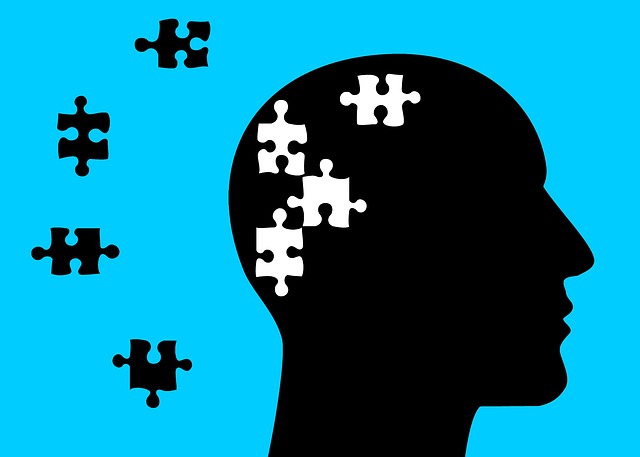
Sleep apnoea is a sleep problem that affects millions of individuals worldwide. It is a condition in which a person’s breathing continuously stops and resumes during sleep.
Snoring, gasping, choking, and disturbed sleep are all symptoms of sleep apnoea. A recent study, however, reveals that sleep apnoea may potentially be connected to speedier memory loss.
Memory loss is a frequent issue that many people face as they age. A range of conditions, including brain damage, neurological illnesses, and ageing, can contribute to it. Recent research suggests that sleep apnoea may potentially play a role in memory loss.
Memory Loss and Sleep Apnea: Understanding the Connection
Sleep apnea can have a significant impact on memory function. The interruptions in breathing cause a decrease in oxygen levels, which can damage the brain cells responsible for memory.
Additionally, sleep apnea can disrupt the sleep cycle, preventing the brain from consolidating memories and forming new ones. Over time, this can lead to significant memory loss.
According to a study published in the Journal of Alzheimer’s Disease, those who have sleep apnoea are more likely to acquire mild cognitive impairment (MCI), a disorder defined by a decrease in memory and cognitive functions.
The study examined over 2,400 persons over the age of 55 for six years and discovered that those with sleep apnoea were roughly twice as likely as those without the disorder to acquire MCI.
Another study published in the Journal of Sleep Research discovered that those with sleep apnoea outperformed those without the disease on memory tests.
The study comprised over 100 participants and discovered that those with sleep apnoea had significantly worse results on verbal and visual memory tests.
According to these findings, sleep apnoea may lead to memory loss by disrupting the sleep cycle and producing a drop in oxygen levels in the brain. The brain is deprived of oxygen during sleep apnoea, which can result in a variety of cognitive issues, including memory loss.
Continuous positive airway pressure (CPAP) therapy, which involves wearing a mask that produces a steady flow of air to keep the airway open during sleep, is one of the numerous treatment options for sleep apnoea.
Oral appliances, surgery, and lifestyle modifications such as decreasing weight, quitting smoking, and avoiding alcohol are also options.
Effects of Memory Loss in the long run

Photo Credit: Pixabay
- Difficulty with Daily Tasks
One of the most noticeable effects of memory loss on daily life is trouble with routine chores. For example, a person may forget to take medication or struggle with food preparation. They may also lose track of where they put stuff like keys or spectacles. These issues can cause dissatisfaction and a loss of independence since persons may require assistance with activities that they previously did without difficulty.
- Social Isolation
Memory loss can also lead to social isolation since people struggle to remember conversations and events. They may also avoid social events because they are embarrassed or ashamed of their memory problems. This can exacerbate emotions of loneliness and depression, further impairing cognitive function.
- Financial and Legal Problems
Memory loss can also cause financial and legal issues. For example, a person may fail to pay payments or make poor financial judgments. They may also have difficulty managing legal matters, such as signing key documents. These problems might lead to financial insecurity and legal problems.
- Safety Concerns
Memory loss might also pose a threat to one’s safety. For example, a person may forget to turn off appliances or lock doors, which might be hazardous. They may also struggle to navigate familiar surroundings, leading to falls or other accidents. These safety worries can result in a loss of freedom and an increasing reliance on others.
Treatments for Sleep Apnoea
The most effective treatment for sleep apnea is continuous positive airway pressure (CPAP) therapy. This involves wearing a mask during sleep that delivers a constant flow of air, keeping the airway open and preventing interruptions in breathing.
CPAP therapy has been shown to improve cognitive function, including memory. Other lifestyle changes, such as weight loss and avoiding alcohol and sedatives, can also help improve sleep apnea symptoms and memory function.
If you are experiencing memory loss, it is important to speak with your healthcare provider. They can help determine the underlying cause of your memory loss and recommend appropriate treatment options.
If you suspect you may have sleep apnea, it is important to seek treatment as soon as possible to prevent further memory loss and improve cognitive function.
Conclusion
To summarise, sleep apnea is a serious sleep disease that can negatively influence memory and cognitive function. Sleep apnoea patients are more likely to have memory issues, including mild cognitive impairment, according to research.
If you or a loved one is suffering symptoms of sleep apnoea, it is critical to seek medical attention because early treatment can help avoid future cognitive deterioration and improve general health and well-being.
About The Author:
Anne Kamwila is a freelance content writer and a digital marketer. She is passionate to write about health, technology, and business-related guides, news, and books.


![[Infographic] Exploring Sleep Debt: Strategies for a Restful Night's Sleep Exploring Sleep Debt: Strategies for a Restful Night's Sleep](https://www.safeandhealthylife.com/wp-content/uploads/2024/01/Sleep-Debt-150x150.webp)

